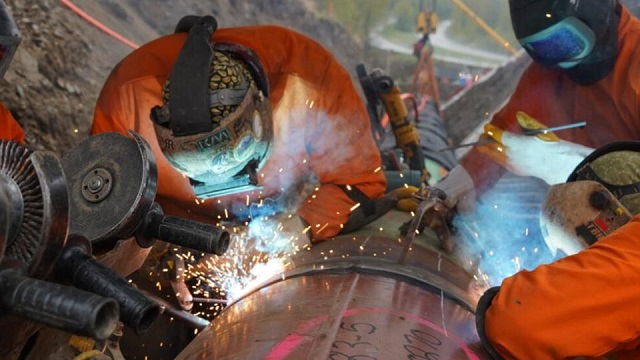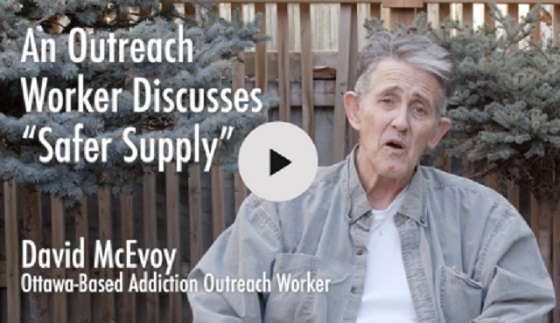Opinion
Colton Boushie’s death was tragic and affected many families including Gerald Stanley’s family.

Colton Boushie’s life was taken from him on August 9, 2016 and at the same time Gerald Stanley’s world was turned upside down.
I was not there and I do not know all the details. I do know that a group outing turned tragic and a family’s life has been negatively affected permanently.
Colton Boushie’s death may have been the result of poor policing, over protection of property, overreaction, fear, hysteria or frustration from increasing rural crime.
Gerald Stanley may have been fearful, over-protective and overwhelmed by the unexpected events, I do not know. I do know that he was found not guilty by a jury of his peers. I still want to believe that one is innocent until proven guilty.
The system may be flawed, but Gerald Stanley did not create the system. We did. Colton Boushie’s death was unnecessary and the system may of let him down. It may have been in the courtroom, but I sense it let him down before August 9, 2016.
It may have been simply bravado, alcohol, stress, fear, a clash of cultures, events escalating out of control, to a tragic end but at least 2 families are suffering because of it.
Can we fix the system? No we can’t. We will try and we will push the pendulum too far in the other direction and we will celebrate until reality kicks in.
Remember Women’s Lib? I was around in the sixties and lived through women’s rights issues very similar to what is happening in today’s news. The racism issues flare up on regular basis and the populace takes note, complains gets promises, compromises and missteps. Then after a period of time, with another group in a different place it happens again.
We can’t fix the system but we can adapt to the times of today but it will be broken again tomorrow.
Colton Boushie’s death was unnecessary and he will be mourned and I hope we can find solutions to prevent it from happening to someone else.
Gerald Stanley, whether guilty or innocent of a crime, will continue to be punished in the court of public opinion and that too needs fixing. Can we fix it? No we can’t.
The most rational of people can be irrational, caught up in the moment, go with the flow, be one with the crowd, then they feel remorse. We need to be rational now if we can find any way to fix this without going too far.
Can we be rational? I hope so.
Fraser Institute
Trudeau and Ford should attach personal fortunes to EV corporate welfare

From the Fraser Institute
By Jason Clemens and Tegan Hill
Last week, with their latest tranche of corporate welfare for the electric vehicle (EV) sector, the Trudeau and Ford governments announced a $5.0 billion subsidy for Honda to help build an EV battery plant and ultimately manufacture EVs in Ontario. Here’s a challenge: if politicians in both governments truly believe these measures are in the public interest, they should tie their personal fortunes with the outcomes of these subsidies (a.k.a. corporate welfare).
One of the major challenges with corporate welfare is the horrendous economic incentives. The politicians and bureaucrats who distribute corporate welfare have no vested financial interest in the outcome of the program. Whether these programs are spectacularly successful (or more likely spectacular failures), the politicians and bureaucrats experience no direct financial gain or loss. Simply put, they’re investing taxpayer money, not their own.
Put differently, the discipline imposed on investors in private markets, such as the risk of losing money or even going out of business, is wholly absent in the government sector. Indeed, the history of corporate welfare in Canada, at both the federal and provincial levels, is rife with abject failures due in large measure to the absence of this investing discipline.
In the last 12 months in Ontario, automakers have been major beneficiaries of corporate welfare. The $5.0 billion for Honda is on top of $13.2 billion to Volkswagen and $15.0 billion to Stellantis. That equates to roughly $979 per taxpayer nationally for federal subsidies and an additional $1,372 for Ontario taxpayers. And these figures do not include the debt interest costs that will be incurred as both governments are borrowing money to finance the subsidies.
And there’s legitimate reason to be skeptical already of the potential success of these largescale industrial interventions by the federal (Liberal) and Ontario (Conservative) governments. EV sales in both Canada and the United States have not grown as expected by governments despite purchase subsidies. Disappointing EV sales have led several auto manufacturers including Toyota and Ford to scale-back their EV production plans.
There are also real concerns about the practical ability of EV manufacturers to secure required materials. Consider the minerals needed for EV batteries. According to a recent study, 388 new mines—including 50 lithium mines, 60 nickel mines and 17 cobalt mines—would be required by 2030 to meet EV adoption commitments by various governments. For perspective, there were a total of 340 metal mines operating across Canada and the U.S. in 2021. The massive task of finding, constructing and developing this level of new mines seems impractical and unattainable, meaning that EV plants being built now will struggle to secure needed inputs. Indeed, depending on the type of mine, it takes anywhere from six to 18 years to develop.
Which brings us back to the Trudeau and Ford governments. Given the economic incentive problems and practical challenges to a large-scale transition to EVs, would members of the Trudeau and Ford governments—including the prime minister and premier—want to attach a portion of their personal pensions to the success of these corporate welfare programs?
More specifically, assume an arrangement whereby those politicians would share the benefits of the program’s success but also share any losses through the value of their pensions. If the programs work as marketed, the politicians would enjoy higher valued pensions. But if the programs disappoint or even fail, their pensions would be reduced or even cancelled. Would these politicians still support billions in corporate handouts if their personal financial wellbeing was tied to the outcomes?
As the funding of private companies to develop the EV sector in Ontario continues with the support of taxpayer subsidies, Ontarians and all Canadians should consider the misalignment of economic incentives underpinning these subsidies and the practical challenges to the success of this industrial intervention.
Authors:
Media
CBC tries to hide senior executive bonuses

From the Canadian Taxpayers Federation
Author: Franco Terrazzano
The Canadian Taxpayers Federation filed a complaint with the Office of the Information Commissioner after the CBC refused to disclose 2023 bonuses for its eight senior executives until days after its President Catherine Tait is scheduled to appear at a parliamentary committee.
“This reeks of the CBC trying to conceal its senior executive bonuses so Tait doesn’t have to talk about it when she testifies at a parliamentary committee,” said Franco Terrazzano, CTF Federal Director. “The CBC is required to follow access to information laws and this nonsense delay is a blatant breach of the law.
“If Tait and her executives think they deserve their bonuses, they should be open and honest about it with taxpayers.”
The CBC proactively discloses certain information related to executive compensation in its annual reports. However, because the annual report lumps together salary and other benefits, Canadians don’t know how much the CBC’s eight senior executives take in bonuses.
Other Crown corporations have provided the CTF with access-to-information records detailing senior executive bonuses. For example, the Canada Mortgage and Housing Corporation paid out $831,000 in bonuses to its 10 senior executives in 2023. The Bank of Canada paid out $3.5 million in bonuses to its executives in 2022.
On March 11, 2024, the CTF filed an access-to-information request seeking details on the compensation paid out to CBC’s eight senior executives in 2023, including bonuses.
On April 9, 2024, the CBC issued a 30-day extension notice.
The new deadline for the CBC to release details on senior executive bonuses is May 10, 2024, just days after Tait is scheduled to appear at committee on May 7, 2024.
In response to a previous access-to-information request, the CBC released to the CTF records showing it paid out $15 million in bonuses to 1,143 non-union staff in 2023. The CBC did not issue an extension notice on that request.
“Tait is wrong to hide the cost of bonuses for CBC’s eight senior executives from the Canadians who pay their cheques,” said Terrazzano. “Tait must do the right thing and confirm to the parliamentary committee that she will cancel CBC bonuses.”
The CTF filed the complaint with the Office of the Information Commissioner on May 3, 2024, regarding the CBC’s delay in releasing documents regarding senior executive bonuses.
“The CBC is legally obligated to release the bonus documents days after the parliamentary committee hearing so obviously Tait has the details readily at hand,” said Terrazzano. “If MPs ask for those details, she needs to answer.
“And just to be clear, the CTF is fine with the CBC releasing this information at committee or anywhere else.”
-

 Brownstone Institute1 day ago
Brownstone Institute1 day agoThe Predictable Wastes of Covid Relief
-

 Brownstone Institute2 days ago
Brownstone Institute2 days agoBook Burning Goes Digital
-

 Community22 hours ago
Community22 hours agoLast Day: What would you do with $20,000 Early Bird Prize?
-

 Bruce Dowbiggin21 hours ago
Bruce Dowbiggin21 hours agoDo It Once, Shame On You; Do It Twice, Shame On Me
-

 Alberta7 hours ago
Alberta7 hours agoCanadian Christian chiropractor fights ‘illegal’ $65,000 fine for refusing to wear mask
-

 Alberta1 day ago
Alberta1 day agoGame changer: Trans Mountain pipeline expansion complete and starting to flow Canada’s oil to the world
-

 Addictions1 day ago
Addictions1 day agoCanada’s ‘safer supply’ patients are receiving staggering amounts of narcotics
-

 conflict20 hours ago
conflict20 hours agoImmigration Experts Warn Possible Biden Plan To Import Gazan Refugees Would Be ‘National Security Disaster’











